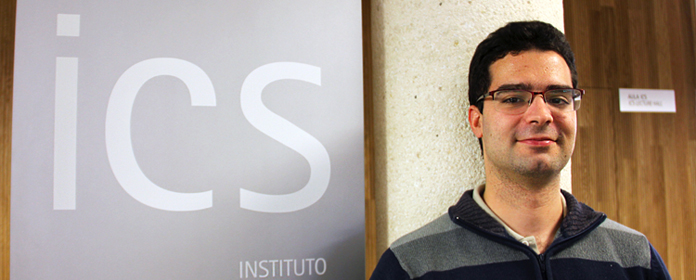A University researcher seeks to prevent alcohol consumption in minors through games in non-play environments
Pedro de la Rosa, from the Institute for Culture and Society, will develop an application that he will test in schools

FOTO: Manuel Castells
A University of Navarra research project seeks to prevent alcohol consumption in minors through gamification— the use of typical elements of game playing, including avatars and levels or virtual rewards— in non-play environments. Pedro de la Rosa, a doctoral student with the Education of Human Affectivity and Sexuality project at the Institute for Culture and Society (ICS), plans to create an application with elements of play and then test it in schools.
For De la Rosa it is important that the games are implemented in real life and not in an environment where they are perceived as a mere video game. "The project needs to create situations where young people work on skills to resist social pressure, control their impulses and ask for help," he explained. As an example, he mentioned the case of "applications related to weight control and physical exercise, which implement points systems, personal challenges, as well as challenges between friends."
This kind of tool seeks to "increase the effectiveness of traditional health education campaigns." In addition, he added that the benefits of his research can be extended to other common problems during adolescence: "The behaviors that we want to promote also help prevent other problems such as bullying or the use of other substances."
285,000 young people between 14 and 18 years old began consuming alcohol in 2015According to data from the Ministry of Health, Social Services and Equality, 285,700 students between the ages of 14 and 18 began consuming alcohol during 2015. The Ministry warns that the habit of "binge" drinking has spread in a short timeframe and occurs mostly on weekends. Of the 58.5% young people polled who had consumed alcoholic beverages in the last 30 days, almost all (99.8%) drank on a weekend, while only 39.3% drank on a weekday. In terms of frequency, 23% of students reported that they drank every weekend.
Regarding the preventive measures that the government is considering, Pedro de la Rosa believes that, "legislation alone will not make a notable difference if it is not accompanied by additional awareness-raising and educational efforts." For the researcher, any measure must combat the perception that drinking alcohol is a low-risk activity, which leads to "the normalization of its consumption in minors."
According to the doctoral student, his project intends to create a consensus among the main agents involved in implementing new measures, "such that the law will have a similar impact to that of driver’s license points in the reduction of traffic accident mortality."
Pedro de la Rosa, who works within ICS’s Education of Human Affectivity and Sexuality project, recently obtained funding from the European Asisa-University Chair for this research. The funding comes from the Chair’s grant program for projects related to biomedical and health sciences to strengthen the connection between the academic world and society.
